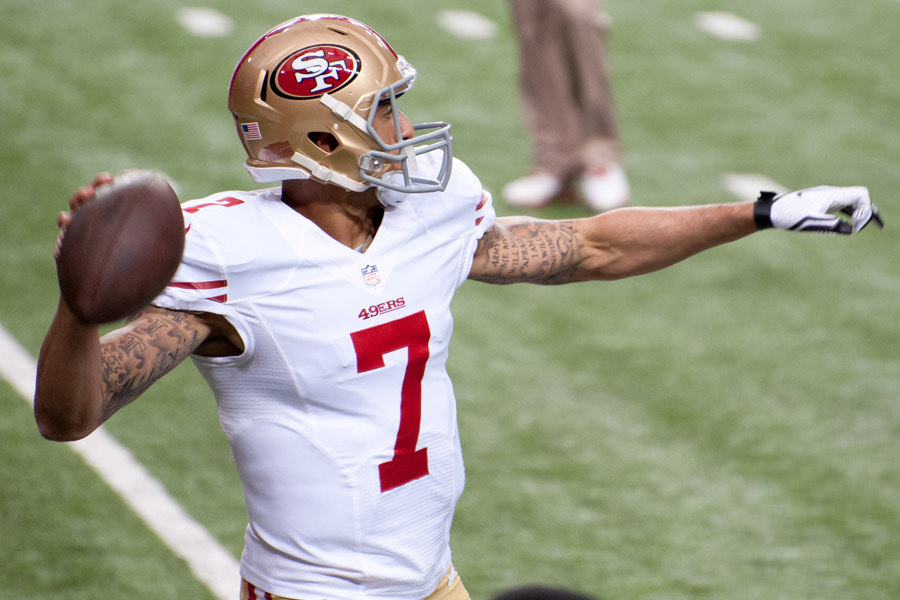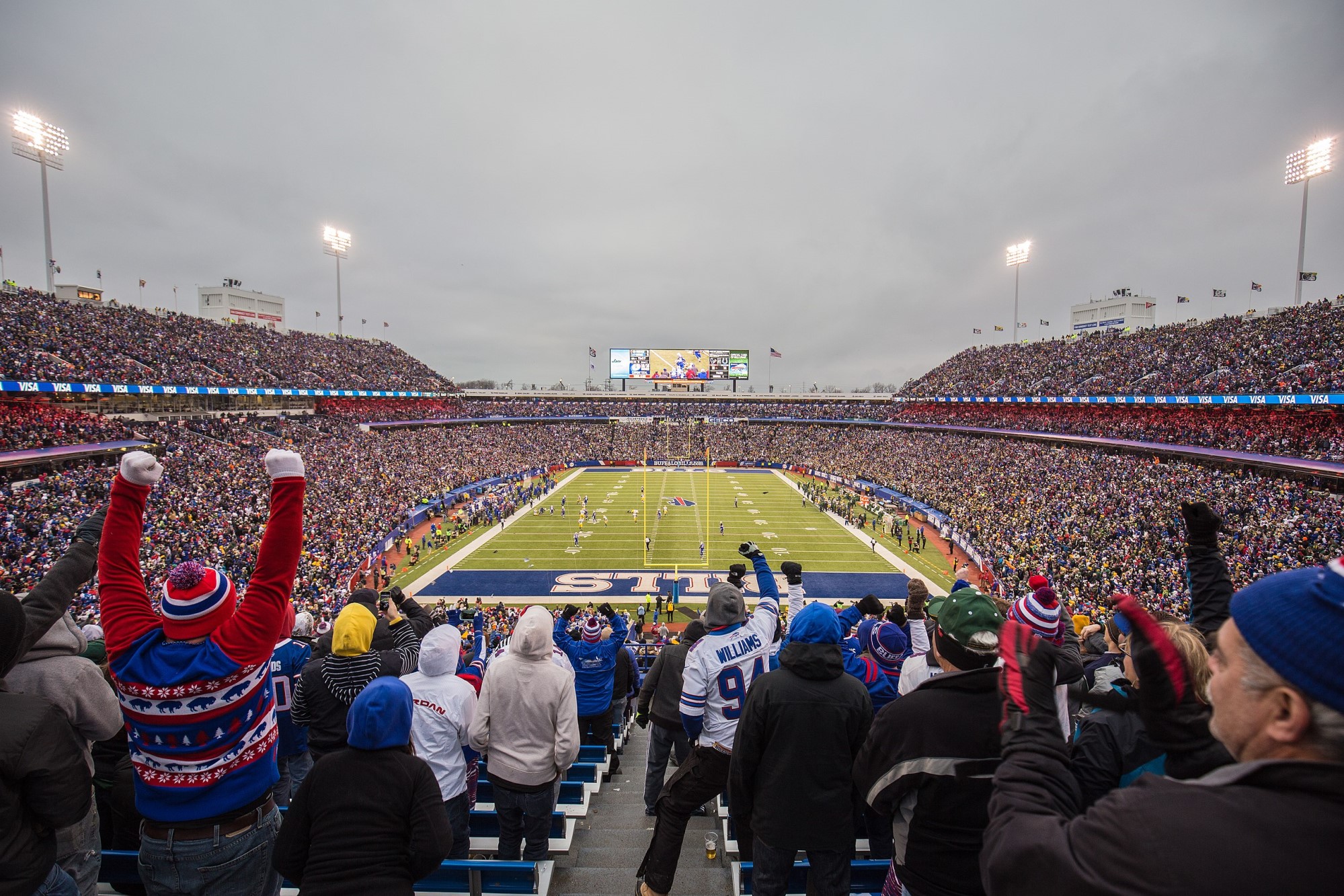The Context of Colin Kaepernick’s Protest
During a preseason game between the Green Bay Packers and the San Francisco 49ers on August 26th, people finally noticed what 49ers’ quarterback Colin Kaepernick had been doing all season: sitting during the national anthem and presentation of the flag. In a press conference with the media, he proclaimed, “I am not going to stand up to show pride in a flag for a country that oppresses black people and people of color.”
There’s no question that it is within Kaepernick’s legal rights to protest what he interprets to be the symbolism of the American flag. President Obama reminded the public in a news conference on September 4th that Kaepernick was “exercising his constitutional rights.” However, does he have an ethical obligation to comply with “common law” practices of standing in respect of the anthem and flag, especially while explicitly representing the 49ers and the NFL while in uniform? Kaepernick’s name is merchandised on thousands of NFL jerseys sold throughout the United States. This puts him in a unique position, as he is almost always acting as an advocate for the NFL and the 49ers. Where do we draw the line between individual expression and one’s responsibility to represent an organization?
First, let’s address the issue of what the flag embodies and whether or not there is predefined symbolism associated with it. This is a crucial question because it would be inappropriate for Kaepernick to impose his own interpretation of the flag’s meaning if the flag objectively represents something else. Obama acknowledged that the anthem and flag carry significant meaning to the members of the military and what they have done for our country; in saying this, he implied that the anthem and flag does indeed hold different attributes according to different people. PBS, however, defines different aspects of the flag very clearly, noting the embedded symbolism of the flag. According to PBS, the flag was designed with specific, color-associated traits at heart. In fact, the blue color stands for perseverance, justice, and vigilance. Drew Brees, quarterback of New Orleans Saints, also believes that the flag inherently symbolizes freedom, saying, “it’s an oxymoron that you’re sitting down, disrespecting that flag that has given you the freedom to speak out.”
The second issue at hand is whether an employee has an ethical obligation to represent the views of their organization, especially while in uniform. Many organizations and companies have policies in place regarding what an employee can and cannot do while wearing the employer’s logo. The NFL did not directly comment on Kaepernick’s protest, but released a statement saying that “players are encouraged but not required to stand during the playing of the national anthem.” His own team, the 49ers, released a statement reaffirming their support and endorsement of the pregame traditions, while also nodding to Kaepernick’s right to dissent as he sees fit. Neither the NFL nor the 49ers’ individual franchise want put their foot in their mouths by criticizing Kaepernick’s decision, but it begs the question of what they really think. The NFL has given Kaepernick the opportunity to play football as his career, but in return Kaepernick is benefiting the organization by dedicating his time and talent.
This all culminated at the 49ers’ preseason against the San Diego Chargers who held their annual “Salute the Military” tribute to the men and women of the armed forces. Before the game, Petty Officer First Class Steven Powell sang the national anthem, while over two hundred active members of all branches of the military presented the flag. In this context, the flag and the national anthem were being clearly presented to honor the sacrifices the military personnel have made for our nation. With the ambiguity surrounding what the flag really means removed, is it still acceptable for Kaepernick to elect what it means, or must he understand that in this context it has a firm definition?
Leading up to the game, “#VeteransForKaepernick” was the number one trending hashtag on Twitter. One veteran tweeted, “I didn’t volunteer to defend a country where police brutality is swept under the rug.” However, Kaepernick, joined by teammate Eric Reid, elected to take a knee for the pregame traditions in order “to show more respect for the men and women who fight for the country.” Despite this change, Kaepernick and Reid’s protests were met with boos from Chargers fans. It is important to note that San Diego has one of the largest military populations in the United States, further complicating the issue.
Now, as several more NFL players have joined Kaepernick’s protest, a counter hashtag is the number one trend on Twitter: #boycottNFL. Denver Bronco’s linebacker Brandon Marshall is one of these players who has joined the protest. He states that “[the NFL] is our only platform to really be heard. …I feel like a lot of times people want us to just shut up and entertain them, shut up and play football. But we have voices as well.” This statement almost makes it seem as though Marshall just wants to be heard. Showing by the new trending hashtag, though, it is apparent that these players’ protests are hurting the brand of the NFL. With all of these new developments in mind, the issue becomes even more convoluted. The core of the ethical dilemma comes down to whether the individual’s rights to express an opinion outweigh the obligation he or she has to the organization which he or she represents. As more professional athletes take sides and the presidential election looms near, the consideration of this dilemma will become even more crucial.





